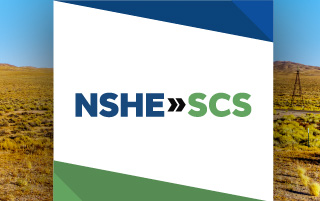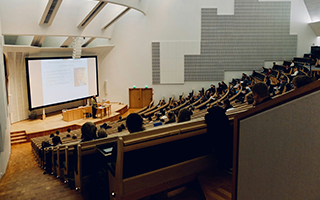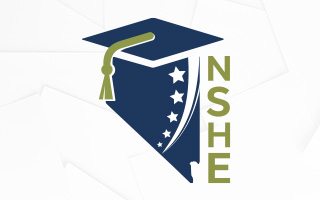NSHE to Lead Multi-State Team to Transform Field Science in the West with $5 Million Grant

The Nevada System of Higher Education (NSHE) is proud to announce the National Science Foundation (NSF) Office of Advanced Cyberinfrastructure awarded NSHE System Computing Services (SCS) a $5 million grant. This funding will help build a stronger workforce in technology for science through the WildWEST (Wild-area-networks Wireless Enabling Science Team) project, an innovative initiative aimed at improving the way we study and understand the environment in the western United States.
The WildWEST project is a collaborative effort lead by NSHE’s NevadaNet in collaboration with the Utah Education and Telehealth Network (UETN) at the University of Utah, and Arizona’s Sun Corridor Network (SCN) at Arizona State University, both of whom will receive sub-awards from NSHE-SCS.
“This NSF grant underscores the collaborative spirit of our research and technology teams within NSHE, along with our dedicated partners at the University of Utah and Arizona State University,” said Interim Chancellor Patricia Charlton. “We are excited about the significant impact this project will have on observational science and eager to share our progress with the broader scientific community.”
Populations and resource managers in the western U.S. increasingly rely on sensor networks operated by earth and environmental scientists to provide crucial near-real-time information on wildfire, water, climate, and ecology. However, study sites are often located in remote, rugged, and extreme environments, presenting significant challenges in installation, maintenance, and digital connectivity. Field researchers frequently work alone or in small teams with a focus on specific scientific questions, often without access to advanced technology platforms or engineering support.
Recognizing this opportunity, NSHE’s NevadaNet, in collaboration with its regional partners, has formed a coordinated team of research technology professionals.
“This team is dedicated to enhancing the value of observational science through improved infrastructure design and connectivity,” said Dr. Scotty Strachan, Principal Investigator for the WildWEST project. “Creating new professional roles in Nevada that have the expertise to deliver advanced technology to remote areas is something that we’ve been working on for years, and now we have the opportunity.”
Over the next five years, the WildWEST project will focus on:
- Workforce Development: Coordinated recruitment and training of field engineering and Internet-of-Things professionals, along with new student trainee positions, in Nevada, Utah, and Arizona.
- Data Transport Solutions: Designing and implementing end-to-end data transport solutions for science in remote and challenging environments.
- Sharing Best Practices: Developing and sharing best practices for field science networks with the national community.
- Field Network Testbed: Setting up a cooperative testbed across state lines to encourage new team-based science opportunities.
- Workflow Evolution: Leveraging existing partnerships with national cyberinfrastructure and regional supercomputing centers to simplify workflows for existing and emerging field science communities.
This award will fund salaries for network research field engineers, new student trainee positions, travel, and tools. The NSHE team will also include science faculty and collaborators from DRI, UNLV and the University of Nevada, Reno.
The WildWEST project will not only develop new technological advancements for field network access but also create large-scale science education opportunities, attract new talent to the science infrastructure research field, and serve as a model of regional network partnerships.
“This grant recognizes the innovative approaches NSHE and its partners are taking to address the complex challenges of field science in remote environments,” said Dr. Anne Milkovich, NSHE Chief Information Officer. “The WildWEST project will pave the way for groundbreaking advancements in environmental monitoring and data connectivity, benefiting both the scientific community and society at large.”
For media inquiries or additional information, please contact Elizabeth Callahan at ecallahan@nshe.nevada.edu or 702-522-7021













